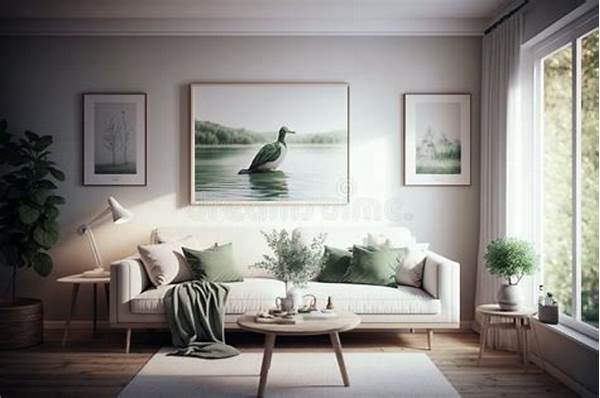- How Minimalist Living Aligns with Well-being
- The Psychological Benefits of Minimalist Living
- Discussion: Unraveling the Secret to Well-being Through Minimalism
- Why Minimalist Living Makes Sense Financially as Well as Emotionally
- Discovering the Emotional Peace That Comes with Less
- Details on How Minimalist Living Aligns with Well-being
- Further Exploration: The Minimalist Path to Healthier Living
- The Pursuit of Happiness Through Minimalism
- Challenges Faced by Minimalists
- Key Explanations on How Minimalist Living Aligns with Well-being
How Minimalist Living Aligns with Well-being
In a world brimming with chaos and clutter, the enticing philosophy of minimalist living promises an oasis of calm and serenity. Imagine waking up every day in a space that’s uncluttered, where every item has its place and purpose, allowing your mind to feel less burdened, clear, and focused. That’s the magical allure of minimalism. But beyond the buzz and the Instagram-worthy aesthetics, there’s a profound connection between minimalist living and personal well-being, forming a lifestyle choice that appeals to more than just the sense of style—it nurtures the mind and soul. This approach seems almost too good to be true, easily dismissed as a fleeting trend. Yet, delve deeper, and you’ll find it’s rooted in psychological and emotional benefits validated by research and practice. As a unique selling proposition, minimalist living isn’t just marketing spiel; it’s a lifestyle shift that promises and often delivers a better quality of life.
Read More : How Minimalist Parenting Simplifies Family Life
In adopting minimalist living, you’re effectively decluttering not just your physical space but also your mental space. Think of it as an exclusive service you provide for yourself, an ongoing practice of mental hygiene. Much like a premium spa treatment for your psyche, embracing minimalism can significantly reduce stress and anxiety, making everyday living more enjoyable. If laughter is the best medicine, then minimalism is perhaps its best friend. Lighter, both in spirit and belongings, one tends to create more room for laughter and joy—an inviting proposition for anyone overwhelmed by modern life demands. This isn’t just speculation; the alignment of minimalist living with improved well-being is backed by various studies and testimonials. Simplifying one’s life can decrease cortisol levels—the pesky stress hormone—primarily when clutter no longer bombards your senses. What you’re left with is a sense of peace, an island amidst life’s storms.
The Psychological Benefits of Minimalist Living
Research in psychology and cognitive science indicates that clutter can make us anxious, stressed, and generally less productive. The simplicity boon brought by minimalist living becomes an oasis of sort, offering clarity and focus which improves overall well-being.
—
Discussion: Unraveling the Secret to Well-being Through Minimalism
At first glance, minimalist living may come across as a fad—merely a design choice hinged on aesthetics. Yet, there’s much more to this lifestyle than meets the eye, most notably how minimalist living aligns with well-being. Strip back the commercialized facade, and you’ll find a lifestyle philosophy grounded in psychological well-being. It’s more than just tidying up Marie Kondo-style; it’s about creating a space and life that reflects your values and aspirations minus the distraction of excess. The desire to simplify isn’t just practical; it’s a heartfelt yearning for a life lived in alignment with our true selves.
One of the key attractions of minimalist living is its capacity to free up mental resources. Imagine dealing with fewer material distractions and instead, channeling that energy into things that nourish your soul. Whether it’s picking up that hobby you’ve always wanted to try or spending more quality time with loved ones, the ripple effects are profound. By compartmentalizing our living spaces, minimalism helps us to compartmentalize thoughts, allowing less intrusion and, therefore, less stress. It’s a service of emotional liberation, one that’s refreshingly liberating in a society intent on glorifying busyness and consumption.
The saying “less is more” profoundly resonates within the minimalist creed. By owning less, you pave the way for experiencing more—not just in terms of time and space but also in mental freedom and emotional resilience. Minimalist living presents itself as a tailored solution to modern woes—an antidote to the culture of disposability. The direct impact on well-being is tangible, supported by a growing body of evidence suggesting lower stress levels, improved concentration, and a greater sense of life satisfaction among those who adopt minimalism. This isn’t just a testimonial but a well-documented fact drawn from various demographic studies.
Why Minimalist Living Makes Sense Financially as Well as Emotionally
Moreover, the financial benefits of minimalist living shouldn’t be understated. Saving money on unnecessary purchases frees up resources, creating a nest egg for experiences rather than things—a major boon for emotional satisfaction.
Discovering the Emotional Peace That Comes with Less
Lastly, the emotionally rewarding journey of shedding material excess leads not only to external simplicity but also to internal peace. When life isn’t weighed down by cluttered thoughts and spaces, well-being naturally follows suit. So, the next time you’re tempted by the latest gadget or fashion piece, ask yourself: does it add value to my life? This simple reflection ties back to how minimalist living aligns with well-being, prompting a lifestyle choice that genuinely enhances life quality.
—
Details on How Minimalist Living Aligns with Well-being
Further Exploration: The Minimalist Path to Healthier Living
Minimalist living is a siren call for those seeking to lead healthier, happier lives in today’s fast-paced society. When we talk about how minimalist living aligns with well-being, the key takeaway is the contrast it offers to a life of consumerism and excess. This isn’t merely about owning fewer items but selectively surrounding oneself with elements that genuinely enrich life. Consider the peace that arrives with reducing chaos in your environment—a link to mental clarity that can’t be bought but cultivated through intentional living.
The psychological and emotional gains of minimalism are numerous. According to studies, the mere sight of physical clutter can increase stress and diminish one’s ability to concentrate and process information efficiently. On the contrary, a minimalist environment can foster a sense of peace and clarity similar to the feeling of a clean slate. Moreover, sentimental clutter, or items we hold onto due to emotional attachment, can often burden us more than we realize. Shedding these physical weights can lift our mental loads significantly, underscoring how minimalist living aligns with well-being by promoting a lifestyle that prioritizes mental health and emotional well-being.
The Pursuit of Happiness Through Minimalism
Adopting minimalism is not just about reducing physical items; it’s an ambitious pursuit of happiness centered on what truly matters. It encourages individuals to redefine their metrics of success—not by the quantity of their possessions but by the quality of their relationships and life experiences.
Challenges Faced by Minimalists
Of course, transitioning to a minimalist lifestyle is not without its challenges. The process demands introspection, prioritization, and most critically, a change in mindset. Breaking free from the consumer culture’s grasp can seem daunting. However, its alignment with well-being makes it a worthy pursuit. Reduced stress, improved focus, and economic savings are just a few of the many benefits.
Embarking on a minimalist journey is akin to renewing one’s lifestyle prescription—a step filled with promise and immense personal growth. While the world continues to speed up, plagued with excess and unnecessary stress, minimalism offers a comforting reminder: that sometimes, less truly is more for the heart and mind.
—
Key Explanations on How Minimalist Living Aligns with Well-being
Why Minimalism is More Than a Buzzword
Transitioning to a minimalist lifestyle extends well beyond mere aesthetics, marking a profound shift towards well-being. By embracing the minimalist ethos, individuals opt for a life rich in intention and authenticity. In doing so, they rekindle a connection with themselves, the world, and the people they cherish, while inadvertently advancing personal well-being. This isn’t just ideology or fleeting fancy; it’s how minimalist living aligns with well-being in practice, a testament to the life less distracted, less stressed, but infinitely more content—turning each day into a mindful experience filled with gratitude.


